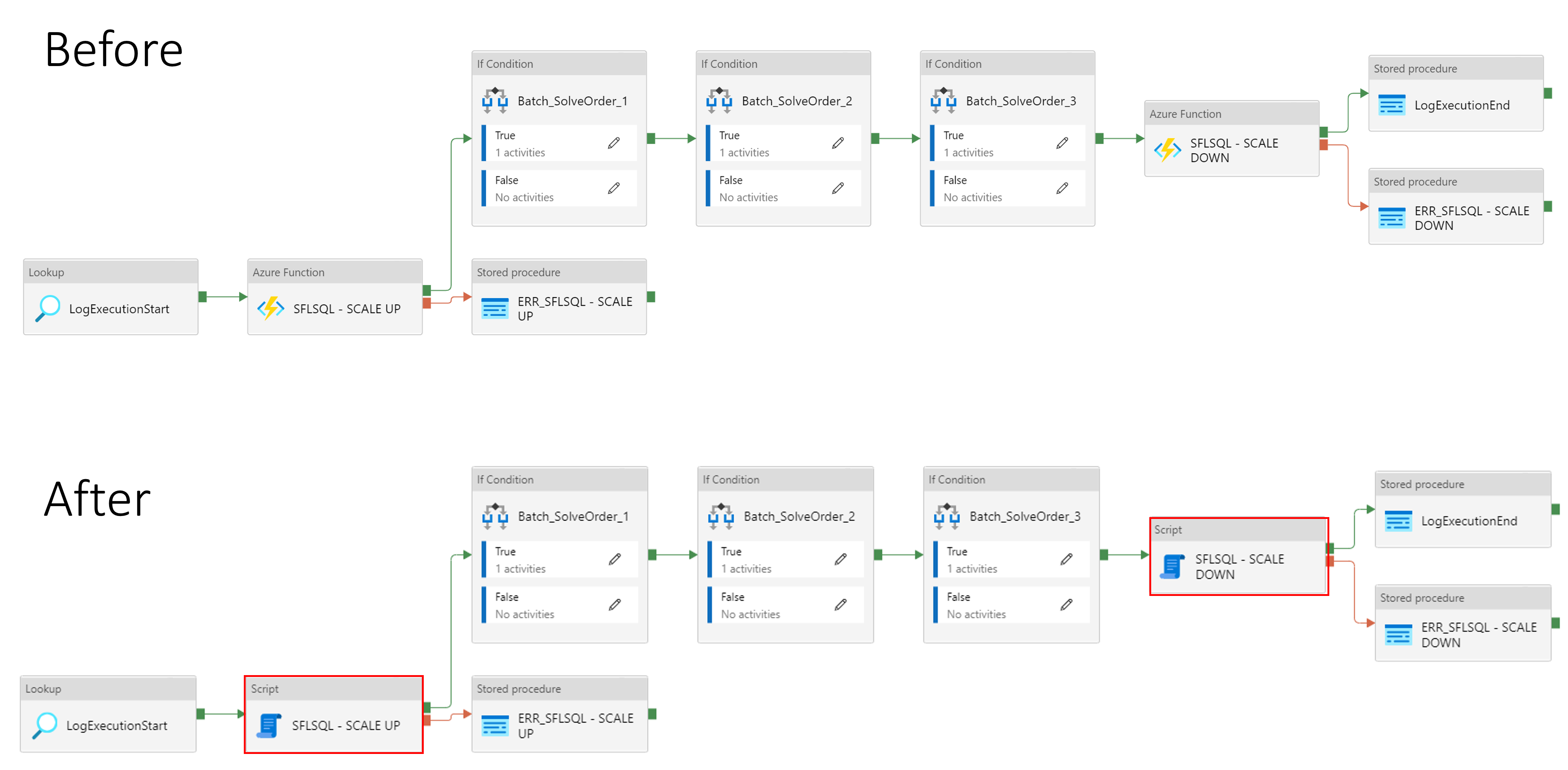Dev Diary - Embracing the new Azure Data Factory Script Activity
March 16, 2022
Earlier this month, the Azure Data Factory (ADF) team at Microsoft release a new way to execute SQL statements in a pipeline: the Script Activity.
The Script Activity allows you to execute common SQL statements to modify structures (DDL) and store, retrieve, delete or otherwise modify data (DML). For example, you can call Stored Procedures, run INSERT statements or perform lookups using queries and capture the result. It complements existing ADF functionality such as the Lookup and Stored Procedure pipeline activities.
In some cases though, the Lookup and Stored Procedure activities have limitations that the new Script Activity does not have. Most importantly, the Script Activity also supports Snowflake and Oracle.
This means that additional customizations to call Stored Procedures on Snowflake (and lookups, to an extent) are no longer necessary. You can simply use the Script Activity.
Varigence has been quick to adopt this new feature, which will be available in the upcoming 2022 R2 release (available early April). As part of 2022 R2, the Script Activity is supported in BimlScript, and the BimlFlex patterns have been updated to take advantage of this new ADF functionality.
A major benefit is that a single approach can be used for all lookup and procedure calls. And, specifically for Snowflake targets, it is no longer necessary to use the Azure Function Bridge that is provided by BimlFlex to run procedures and queries on Snowflake. Even though the Azure Function Bridge has been effective -and is still in use for certain features that ADF does not yet support directly - we prefer to use native ADF functionality whenever possible because this offers the most flexibility and ease of maintenance for our users.
Below is an example of the changes in the patterns that you can expect to see in the upcoming 2022 R2 release. In this example, the Azure Function call has been replaced by a direct script call to Snowflake.

